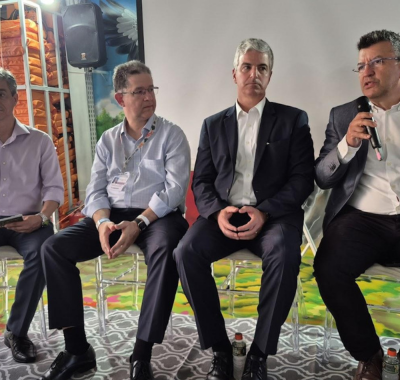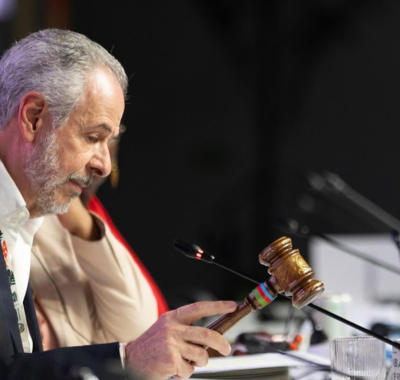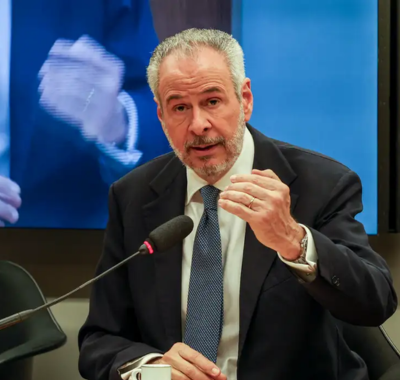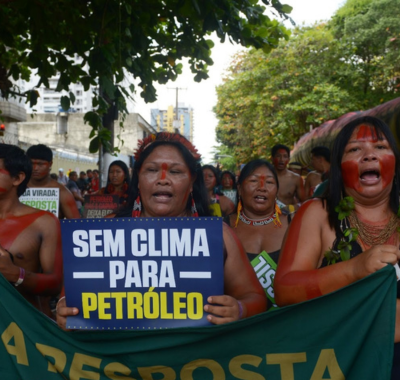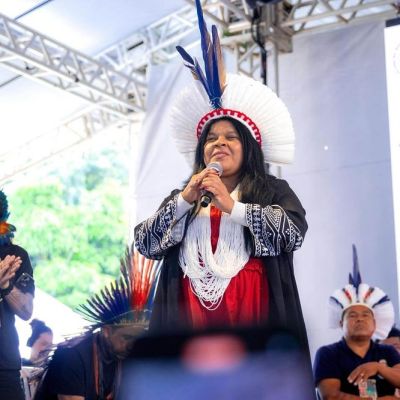Countries debate how to unify biodiversity and climate actions without overburdening developing nations
Author: Aldem Bourscheit
Gathered at COP30, scientists and negotiators strengthen the growing consensus that tackling the climate crisis requires greater biodiversity protection. Thus, integrating Rio92 conventions is considered an inevitable step towards more effective and coherent responses to the planet’s environmental emergencies.
In practice, the synergy between global agreements may spread and increase the impacts of initiatives – such as restoration of native vegetation – that combine benefits such as removing CO2 from the atmosphere, protecting biodiversity, and combating desertification.
“This alignment will send a signal in terms of politics and confidence for public and private actors to move forward with concrete initiatives,” said Hugo Mendes, head of Engagement and Coordination of the Climate Change Secretariat of the Ministry of the Environment and a member of the Brazilian delegation at COP30.
In Brazil, this coordination is crucial for turning commitments into practice, because without integrating the agendas, the economic impacts may continue to erode the necessary implementation of the three conventions that emerged three decades ago in the city of Rio de Janeiro, Brazil.
In this context, Júlia Shimbo, a researcher at the Amazon Environmental Research Institute (IPAM) and scientific coordinator at MapBiomas, pointed out that conversion of forests into farming affects biodiversity. “More than 40% of Brazilian emissions come from land-use change, especially deforestation.”
Armed with a database containing four decades of satellite images, she stressed the importance of restoring ecosystems and strengthening the connection between conservation units, indigenous territories, and other protected areas so that more species can adapt to the climate crisis.
“Biodiversity knowns no borders. We need to see biomes as interconnected systems where a lost fragment reverberates throughout the whole,” Shimbo stressed.
Aware of this scenario, Ludmilla Rattis, a researcher at the Woodwell Climate Research Center and a professor at the Dom Cabral Foundation (FDC), emphasized that the necessary synergy between climate and biodiversity also involves agriculture.
“We can’t increase production at the expense of forests and other natural environments. This reduces productivity because it destroys the ecosystem services on which the agribusiness sector depends,” she said.
Therefore, she advocates rural policies that create “climate-proof landscapes” based, among other things, on environmental recovery projects – provided for in forest legislation – to connect conservation units and other protected areas. “It’s the ripest fruit we can pick now,” she said.
Rattis also highlighted the need for more economic incentives to curb deforestation on rural properties, bringing production and conservation closer together. “Producers will not give up the land if there is no compensation for opportunity costs. We need to be pragmatic because time is running out,” she warned.
Patricia Médici, who holds a PhD in Biodiversity Management from the University of Kent, highlighted that species like the tapir are key to perpetuating tropical forests and their biodiversity by dispersing seeds and shaping habitats. “It helps keep ecosystems resilient, and that’s part of climate solutions,” she said.
In light of this, the researcher recalled that the disappearance of these species is a loss of biodiversity that can lead to the collapse of vital ecological processes. “There are countless empty forests in Brazil, which appear intact but have lost their ecological functions because the animals that maintained them are no longer there.”
Rattis, Shimbo and Médici – all scientists – participated in a debate on Climate Change and Biodiversity Conservation in Brazil promoted by Ecological Research Institute (IPÊ) during the COP30 in Pará’s state capital.
Speeding up integration at COP30
The integration of the three conventions began to be debated yesterday (11) at COP30. “While countries like Brazil are encouraging a faster decision-making process, the Arab group advocated caution,” said Juliana Marcussi, manager of climate policy and carbon markets at LaClima institute.
The Arabs want to slow down because, as ((o))eco found out, they fear that the synergy of the conventions will create new obligations, change the climate governance system, and affect their economic interests – especially in fossil fuels.
“If there is no agreement, everything is left for next year and the window to turn synergy into concrete deliverables will narrow,” Marcussi stressed.
Therefore, for her, the debates must go beyond theory to guide decisions and funding. “The best of all worlds would be a decision formalizing this discussion at the Climate Convention and creating a working group to define how this synergy will take place,” she said.
That is, the expectation is that a structured and permanent effort will be triggered between the secretariats of the three conventions, Mendes summarized. “The idea is that an action on one convention will also create benefits for the others,” Mendes explained.
He stressed, however, that this cannot impose new burdens on developing countries, such as budget cuts. “Each convention has its own commitments and distinct reports, and its funding must remain specific. It’s unacceptable for resources to be uniformly accounted for,” he said.
By reinforcing that the climate, biodiversity loss, and desertification crisis are all sides of the same emergency, integrating the conventions could be a new phase in global environmental governance. The challenge now is to achieve political consensus and lasting funding sources with concrete results.
—
This report was produced by ((o))eco, through the Collaborative Socio-environmental Coverage of COP 30. Read the original report at: https://oeco.org.br/reportagens/cupula-de-belem-pode-acelerar-a-integracao-de-convencoes-da-rio92/








